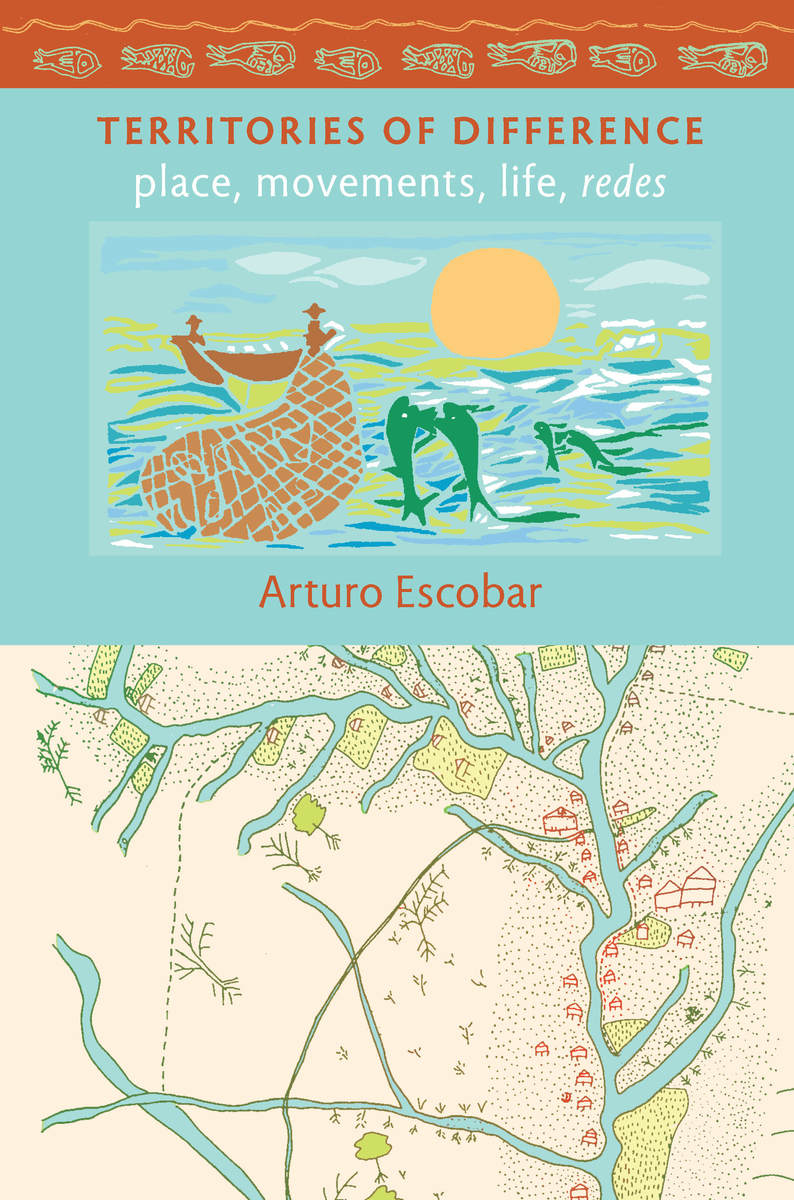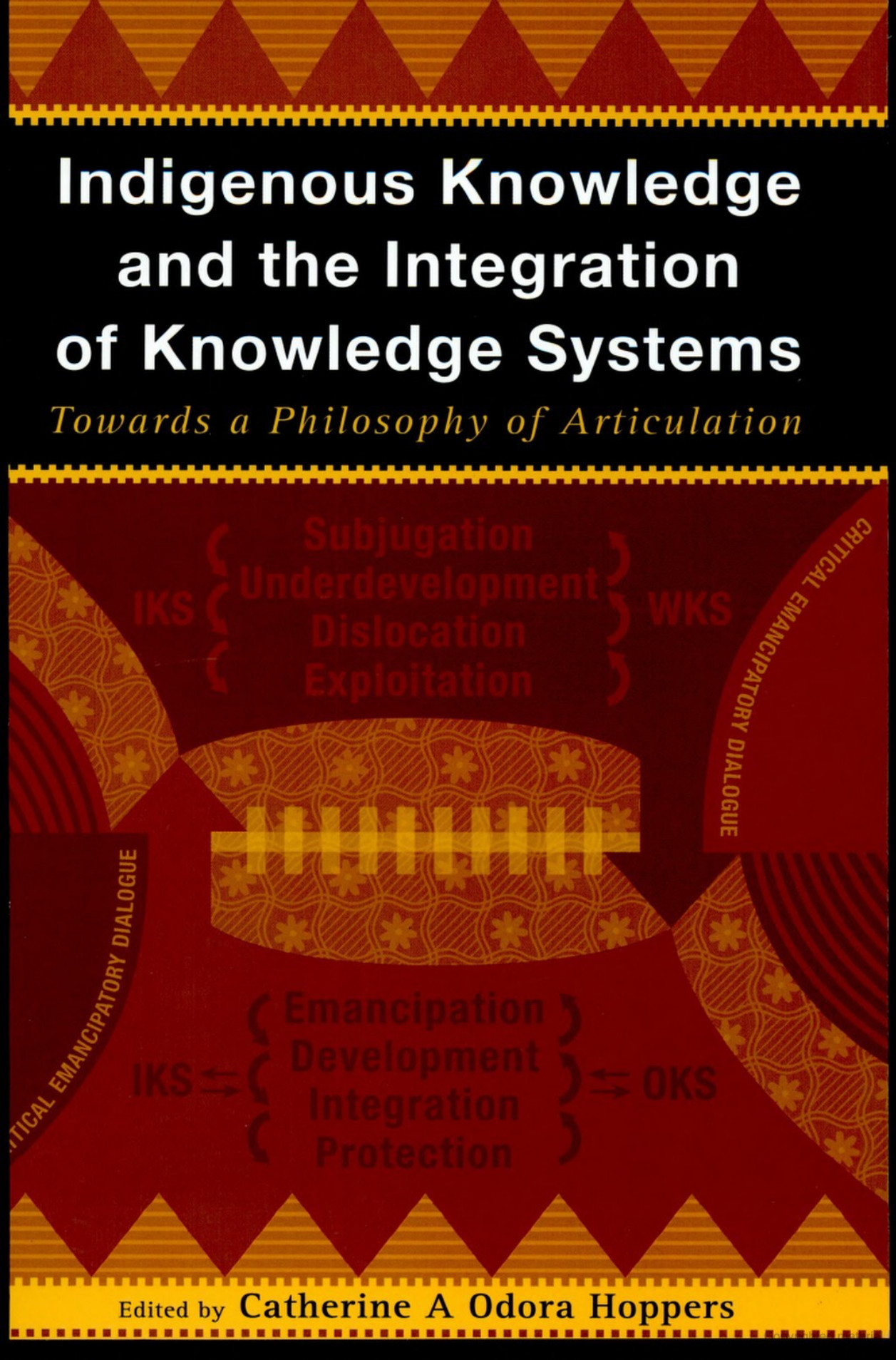Arturo Escobar: Territories of Difference: Place, Movements, Life, Redes (2008)
Filed under book | Tags: · anthropology, assemblage, biodiversity, black people, complexity theory, decoloniality, epistemology, ethnography, governance, indigenous peoples, modernity, nature, politics, self-organization, social movements, state, territory

“In Territories of Difference, Arturo Escobar, author of the widely debated book Encountering Development, analyzes the politics of difference enacted by specific place-based ethnic and environmental movements in the context of neoliberal globalization. His analysis is based on his many years of engagement with a group of Afro-Colombian activists of Colombia’s Pacific rainforest region, the Proceso de Comunidades Negras (PCN). Escobar offers a detailed ethnographic account of PCN’s visions, strategies, and practices, and he chronicles and analyzes the movement’s struggles for autonomy, territory, justice, and cultural recognition. Yet he also does much more. Consistently emphasizing the value of local activist knowledge for both understanding and social action and drawing on multiple strands of critical scholarship, Escobar proposes new ways for scholars and activists to examine and apprehend the momentous, complex processes engulfing regions such as the Colombian Pacific today.
Escobar illuminates many interrelated dynamics, including the Colombian government’s policies of development and pluralism that created conditions for the emergence of black and indigenous social movements and those movements’ efforts to steer the region in particular directions. He examines attempts by capitalists to appropriate the rainforest and extract resources, by developers to set the region on the path of modernist progress, and by biologists and others to defend this incredibly rich biodiversity “hot-spot” from the most predatory activities of capitalists and developers. He also looks at the attempts of academics, activists, and intellectuals to understand all of these complicated processes. Territories of Difference is Escobar’s effort to think with Afro-Colombian intellectual-activists who aim to move beyond the limits of Eurocentric paradigms as they confront the ravages of neoliberal globalization and seek to defend their place-based cultures and territories.”
Publisher Duke University Press, 2008
New Ecologies for the Twenty-first Century series, 1
ISBN 9780822343271, 0822343274
xvi+435 pages
Reviews: Laura Fano Morrissey (Development, 2009), Christopher L. Chiappari (Latin American Politics & Society, 2010), Pierre Hamel (American Journal of Sociology, 2010), Lilly U. Nguyen (Interactions, 2010), Rodrigo A. Lima de Medeiros & Guilherme F. W. Radomsky (Sociedade e Estado, 2010, BR-PT), Manuel J. Prieto (Revista de geografía Norte Grande, 2010, ES), Jeffrey S. Juris (American Anthropologist, 2011), Cornelia Butler Flora (J Agric Environ Ethics, 2011), Claudia Steiner (Americas, 2011), Paul Routledge, Juanita Sundberg, Marcus Power, & Arturo Escobar (Progress in Human Geography, 2012).
PDF (5 MB)
Comment (0)Eduardo Viveiros de Castro: The Relative Native: Essays on Indigenous Conceptual Worlds (2015)
Filed under book | Tags: · anthropology, cosmology, ethnology, indigenous knowledge, indigenous peoples

“This volume is the first to collect the most influential essays and lectures of Eduardo Viveiros de Castro. Published in a wide variety of venues, and often difficult to find, the pieces are brought together here for the first time in one major volume, which includes his momentous 1998 Cambridge University Lectures, “Cosmological Perspectivism in Amazonia and Elsewhere.”
Rounded out with new English translations of previous works, the resulting book is a wide-ranging portrait of one of the towering figures of contemporary thought—philosopher, anthropologist, ethnographer, ethnologist, and more. With a characteristic afterword by Roy Wagner, elucidating Viveiros de Castro’s influence and engaging with his arguments, The Relative Native further cements Viveiros de Castro’s position at the center of contemporary anthropological inquiry.”
Afterword by Roy Wagner
Publisher HAU Books, Chicago, 2015
Open access
ISBN 9780990505037, 0990505030
vi+355 pages
Review: Eugene N. Anderson (Ethnobiology Letters, 2016).
PDF, PDF (2 MB, updated on 2021-12-22)
Comments (2)Catherine A. Odora Hoppers (ed.): Indigenous Knowledge and the Integration of Knowledge Systems: Towards a Philosophy of Articulation (2002)
Filed under book | Tags: · africa, cultural anthropology, ethnoscience, indigenous knowledge, indigenous peoples, knowledge, postcolonialism

“This book explores the role of the social and natural sciences in supporting the development of indigenous knowledge systems. It looks at how indigenous knowledge systems can impact on the transformation of knowledge generating institutions such as scientific and higher education institutions on the one hand, and the policy domain on the other.”
With contributions by Paulin J. Hountondji, C. Shiv Visvanathan, P. Pitika Ntuli, Scott Fatnowna, Harry Pickett, Peter Crossman, Rene Devisch, B. O. Tema, A. M. S. Majeke, L. Mqotsi, Françoise Vergès, R. A. Mashelkar, Robert Mshana, and Birgit Brock-Utne
Publisher New Africa Books, Claremont, South Africa, 2002
ISBN 1919876588, 9781919876580
xiv+285 pages
via anthem231
Review: Howard A. Doughty (Innovation Journal, 2005).
PDF (18 MB)
Comment (0)
